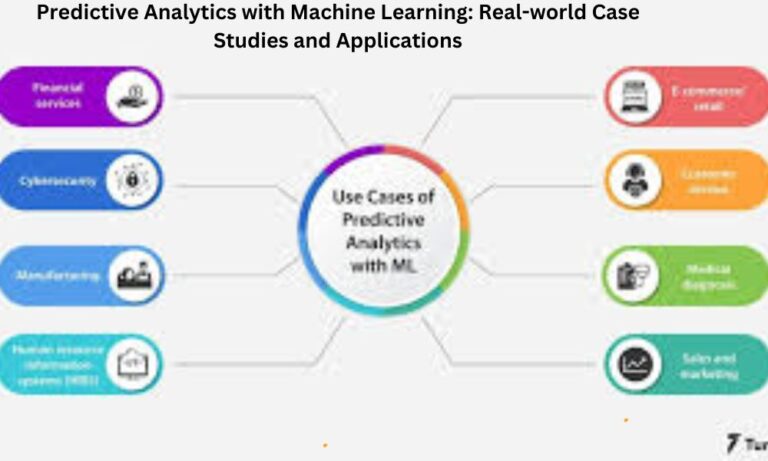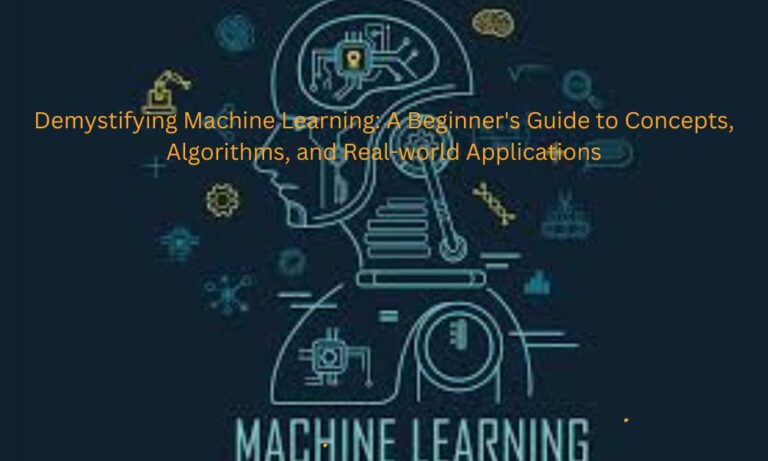Data Ethics: Navigating the Moral Landscape of Data Science
In the era of data-driven decision-making, the ethical considerations surrounding data science have become increasingly crucial. The responsible use of data, privacy concerns, and the development of ethical AI are topics that demand attention and discussion.
Table of Contents
Data ethics form the backbone of responsible data science practices. It encompasses the principles, guidelines, and standards that govern the collection, storage, analysis, and utilization of data. As businesses and organizations leverage data to gain insights and make informed decisions, the ethical implications of these actions come into sharp focus.
Defining the Ethical Landscape of Data Science
Ethics in data science refers to the moral principles and values that guide the ethical use of data. It involves considerations such as transparency, fairness, accountability, and respect for privacy rights. At its core, ethical data science seeks to ensure that data is collected, analyzed, and utilized in a manner that is morally sound and aligns with societal norms and expectations.
Significance of Ethical Data Practices
Ethical data practices are essential for building trust and credibility in the data-driven era. When organizations prioritize ethical considerations in their data operations, they demonstrate a commitment to integrity and respect for individual rights. Moreover, ethical data practices mitigate the risks of data misuse, discrimination, and privacy violations, thereby fostering a culture of responsibility and accountability.
The Foundations of Data Ethics
Understanding the historical context and philosophical underpinnings of data ethics is crucial for navigating its complexities in contemporary society.
Understanding Data Ethics in the Context of Technology
Data ethics has evolved in response to technological advancements and societal changes. From the early days of data collection to the era of big data and artificial intelligence, ethical considerations have shaped the way we approach data science and analytics. Recognizing the ethical dimensions of technology enables us to address ethical dilemmas and challenges proactively.
Historical Perspectives on Data Misuse
Throughout history, instances of data misuse and ethical lapses have underscored the importance of ethical data practices. From the misuse of census data for discriminatory purposes to the unethical conduct of experiments involving human subjects, historical precedents serve as cautionary tales and reminders of the ethical responsibilities inherent in data science.
Importance of Ethical Data Practices
Ethical data practices are essential for maintaining the trust and confidence of stakeholders, including customers, employees, regulators, and the general public.
Building Trust in the Data-Driven Era
Trust is the foundation of successful data-driven initiatives. When individuals and organizations trust that their data will be handled responsibly and ethically, they are more willing to share information and participate in data-related activities. Conversely, breaches of trust can have far-reaching consequences, eroding confidence and damaging reputations.
Impact on Organizational Reputation
Ethical lapses in data practices can tarnish an organization’s reputation and undermine its credibility. High-profile data breaches, privacy scandals, and instances of data misuse can result in financial losses, legal liabilities, and damage to brand image. By prioritizing ethical data practices, organizations can safeguard their reputation and maintain the trust of stakeholders.
Privacy Concerns in Data Analysis
Privacy concerns loom large in an era of ubiquitous data collection, surveillance, and analysis. Protecting individual privacy rights while harnessing the power of data for innovation and decision-making is a delicate balancing act.
Balancing Data Utility and Individual Privacy
Achieving a balance between data utility and individual privacy is a key challenge for data scientists and organizations. While data-driven insights can drive innovation and improve decision-making, they must not come at the expense of individual privacy rights. Implementing robust privacy measures, such as anonymization, encryption, and access controls, can help mitigate privacy risks while preserving data utility.
Legal Implications of Mishandling Sensitive Information
The mishandling of sensitive information can have severe legal consequences for organizations. Regulatory frameworks such as the General Data Protection Regulation (GDPR) and the California Consumer Privacy Act (CCPA) impose stringent requirements on the collection, processing, and storage of personal data. Failure to comply with these regulations can result in hefty fines, legal penalties, and reputational damage.
Responsible AI Development
As artificial intelligence continues to permeate various aspects of society, ensuring that AI systems are developed and deployed ethically is paramount.
The Role of Ethical Frameworks in AI
Ethical frameworks provide guidelines and principles for the responsible development and use of AI systems. Concepts such as fairness, transparency, accountability, and explainability are central to ethical AI frameworks. By adhering to these principles, developers and organizations can mitigate the risks of bias, discrimination, and unintended consequences in AI systems.
Mitigating Bias and Fairness in AI Algorithms
Bias in AI algorithms can perpetuate existing inequalities and reinforce systemic biases. Addressing bias and promoting fairness in AI requires a multifaceted approach that encompasses algorithmic transparency, data diversity, and stakeholder engagement. By actively identifying and mitigating bias in AI systems, organizations can foster trust and inclusivity in their technology initiatives.
Case Studies on Ethical Data Science
Examining real-world examples of ethical data science practices can provide valuable insights and lessons for organizations and practitioners.
Highlighting Ethical Success Stories
Ethical data science initiatives have the potential to drive positive social impact and empower marginalized communities. From healthcare and education to environmental conservation and humanitarian aid, ethical data science projects demonstrate the transformative potential of data-driven innovation when guided by ethical principles and values.
Learning from Past Ethical Failures in the Industry
Conversely, ethical lapses and failures in data science serve as cautionary tales and opportunities for reflection and improvement. High-profile scandals involving data privacy violations, algorithmic bias, and unethical experimentation underscore the importance of ethical vigilance and accountability in data science.
Challenges and Controversies
Ethical dilemmas and controversies abound in the fast-paced world of data science, posing complex challenges for organizations and policymakers alike.
Ethical Dilemmas in Data-Driven Decision Making
Data-driven decision-making often entails navigating ethical dilemmas and trade-offs. From weighing the benefits of data-driven insights against privacy concerns to addressing the potential social and ethical implications of algorithmic decision-making, organizations must grapple with a myriad of ethical considerations in their data practices.
Addressing Controversies Surrounding Data Collection and Use
Controversies surrounding data collection and use raise fundamental questions about privacy, consent, and the commodification of personal information. Debates over surveillance capitalism, data ownership, and algorithmic accountability highlight the tensions between innovation, profit motives, and individual rights in the digital age.
Future Trends in Data Ethics
As technology continues to advance and society evolves, the ethical landscape of data science will continue to evolve in response to emerging trends and challenges.
Emerging Technologies and Ethical Considerations
Advancements in technologies such as machine learning, big data analytics, and the Internet of Things (IoT) present new opportunities and ethical dilemmas. From the ethical implications of predictive analytics to the societal impact of autonomous systems, the ethical dimensions of emerging technologies require careful consideration and deliberation.
The Evolution of Data Ethics in a Rapidly Changing Landscape
The field of data ethics is dynamic and ever-evolving, shaped by technological innovation, regulatory developments, and societal norms. As organizations and policymakers grapple with ethical challenges and dilemmas, the evolution of data ethics will be characterized by ongoing dialogue, debate, and adaptation to changing circumstances.
Industry Standards and Guidelines
A robust framework of industry standards and guidelines provides a roadmap for organizations seeking to embed ethical data practices into their operations.
Overview of Existing Data Ethics Frameworks
Numerous frameworks and guidelines exist to assist organizations in navigating the ethical dimensions of data science. The Fair Information Practice Principles (FIPPs), the Ethical AI Principles, and sector-specific codes of conduct offer valuable guidance for ethical data practices. Familiarity with these frameworks equips organizations with the tools needed to develop and implement robust ethical data strategies.
The Role of Regulations in Shaping Ethical Data Practices
Regulatory frameworks play a pivotal role in shaping ethical data practices. Laws such as the GDPR, CCPA, and the Health Insurance Portability and Accountability Act (HIPAA) establish legal requirements for data protection and privacy. Adhering to these regulations is not only a legal obligation but also a critical aspect of maintaining ethical standards in data science.
Strategies for Implementing Ethical Data Science
Transforming ethical principles into actionable strategies requires a concerted effort from organizations, data professionals, and policymakers.
Creating Ethical Guidelines within Organizations
Organizations must proactively develop and communicate ethical guidelines that align with their values and objectives. These guidelines should address key ethical considerations, including data privacy, transparency, fairness, and accountability. By establishing a culture of ethical data governance, organizations can ensure that ethical considerations are integrated into all stages of the data lifecycle.
Training and Education for Data Professionals
Equipping data professionals with the knowledge and skills needed to navigate ethical challenges is essential. Training programs and educational initiatives should cover ethical principles, regulatory compliance, and the practical application of ethical frameworks in data science. Continuous learning and professional development ensure that data professionals remain vigilant and adaptive in the face of evolving ethical considerations.
Responsible Data Science: A Holistic Approach
In conclusion, embracing responsible data science is not merely a compliance requirement; it is a commitment to ethical values that safeguard individual rights, promote transparency, and foster trust. As organizations navigate the complexities of the data-driven era, ethical considerations must remain at the forefront of decision-making processes.
Upholding Ethical Standards in Data Science
Upholding ethical standards in data science is not only a moral imperative but also a strategic advantage. Organizations that prioritize ethical data practices distinguish themselves as responsible stewards of information, earning the trust and loyalty of their stakeholders.
Encouraging a Collective Responsibility in the Data Science Community
The responsibility for ethical data science extends beyond individual organizations to the broader data science community. Collaboration, knowledge sharing, and open dialogue are essential for collectively addressing the ethical challenges and opportunities in data science. By fostering a community-driven approach to ethical data science, we can contribute to the development of a sustainable and inclusive data ecosystem.
Frequently Asked Questions (FAQ)
Q1: How can organizations balance the benefits of data-driven decision-making with ethical considerations?
In balancing data-driven decision-making with ethical considerations, organizations should prioritize transparency, accountability, and fairness. Implementing robust ethical guidelines, conducting ethical impact assessments, and involving stakeholders in decision-making processes can help strike a balance between deriving insights from data and respecting individual rights.
Q2: What are the key challenges in mitigating bias and ensuring fairness in AI algorithms?
Mitigating bias and ensuring fairness in AI algorithms involve addressing challenges such as biased training data, algorithmic opacity, and the interpretation of fairness. Organizations can adopt techniques like algorithmic auditing, diverse dataset curation, and explainable AI to identify and rectify biases in AI systems.
Q3: How can individuals protect their privacy in an era of widespread data collection?
Individuals can protect their privacy by being mindful of the information they share online, using privacy settings on digital platforms, and regularly reviewing and managing app permissions. Additionally, supporting and advocating for strong data protection regulations can contribute to a more privacy-conscious digital environment.
Q4: What role do ethical frameworks play in guiding the development of AI systems?
Ethical frameworks provide guiding principles for the development and deployment of AI systems. These frameworks emphasize values such as transparency, fairness, accountability, and explainability. Adhering to ethical frameworks helps developers and organizations align their AI initiatives with societal values and ethical norms.
Q5: How can organizations ensure that their data professionals are well-versed in ethical considerations?
Organizations can ensure that their data professionals are well-versed in ethical considerations through comprehensive training and educational programs. These programs should cover ethical principles, relevant regulations, and practical scenarios to equip data professionals with the knowledge and skills needed to navigate ethical challenges in their day-to-day work.
In conclusion, the ethical landscape of data science is multifaceted, requiring a holistic approach that integrates ethical principles into every aspect of data operations. By navigating the challenges, embracing responsible practices, and fostering a collective commitment to ethical data science, we can create a data-driven future that is not only innovative but also ethical and inclusive.


